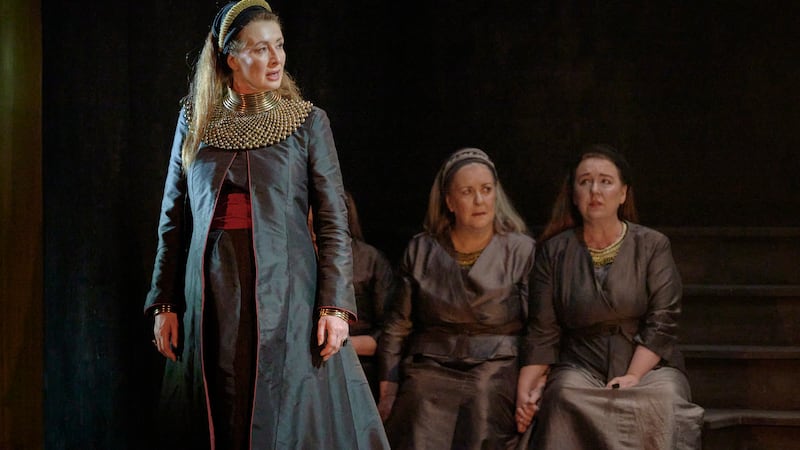FORAS na Gaeilge and Bòrd na Gàidhlig last week launched a new website for the Colmcille programme, which links Gaelic Ireland and Scotland.
Fittingly, the newly-designed colmcille.net was launched on 9 June, the saint’s Feast Day with the website incorporating a new logo for Colmcille, the partnership programme linking Irish and Scottish Gaelic.
The site is available in Irish and Scottish Gaelic and English and is integrated with social media channels.
The 6th century Saint Colmcille founded the abbey of Iona which played a central role in spiritual life and broader culture in Ireland, Scotland and the north of England.
The abbey and its sister foundations left major cultural landmarks, including The Book of Kells.
The 1500th anniversary of his birth in Donegal will see a year-long commemoration, Colmcille 1500, from 7 December 2020 to 7th December 2021.
The launch event highlights included a talk by Dr. Brian Lacey, which is still available on the Colmcille1500 Facebook page
:: If the current restrictions on travel and access induced by the COVID-19 pandemic are lifted, the University of Western Brittany (UBO) in Brest hopes to be in a position to recruit an Irish language assistant for the next academic year, starting September 2020.
The post would be for one year (September to August) renewable once and the assistant would be required to teach students ranging from 1st year to Master’s level.
The yearly workload would be around 200 hours teaching TDs (seminars): approximately 6-8 hours a week (3-4 groups) in the Language Department and 2-4 hours in the Master’s.
There are two 10-week semesters, which comprise tuition and examinations (the latter accommodated within class time). languages.
The applicant must also have a good understanding and working knowledge of French. He or she would be in charge of designing the course syllabus and preparing his or her own material.
:: For further information, you should contact anne.hellegouarch@univ-brest.fr; daniel.lebris@univ- brest.fr; gaelle.lecorre@univ-brest.fr




